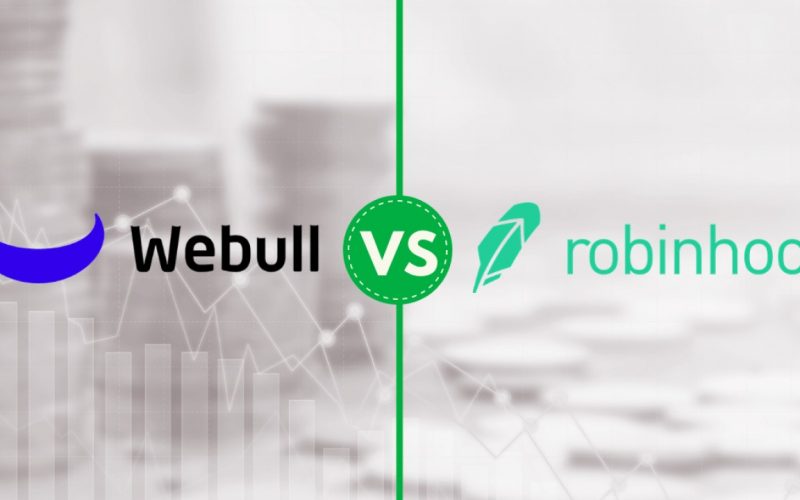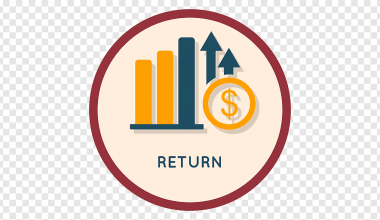When it comes to trading stocks and other options, the first two platforms that come to mind are Webull and Robinhood. They’ve basically become household names. But then it’s almost impossible to use both at the same time, which is why you need some sort of guide that will help you make a choice that fits into your overall financial goals and trading style. As a result, this post covers a comprehensive review of the information you’d need to make a perfect choice. In other words, a review on Webull vs Robinhood, based on review platforms like Reddit and a couple of other review sites.
Furthermore, beyond Reddit information, we will also review Webull vs Robinhood trading hours, day trading options, and crypto options.
Let’s set the ball rolling…
Webull vs Robinhood: Trading Hours, Day Trading, & Crypto Trading Basics
One of the first apps to allow retail investors to trade stocks and ETFs with no account minimums, commissions, or monthly fees was Robinhood. This action sparked a chain reaction, with several other financial institutions following suit.
Since then, Robinhood has added IPO investing, crypto trading, and options trading to its portfolio. Anyone who uses the Robinhood platform can now trade as much as they want without the worries of the past.
Webull, on the other hand, is a more advanced older version. Webull includes all of the above features, but in greater depth. It provides financial data and analysis tools, as well as retirement accounts, which are not available using Robinhood.
To put it another way, analyzing Robinhood vs Webull, you’d see that they both provide similar tools including crypto options. However, while Webull caters to intermediate to advanced traders, Robinhood caters to novice investors.
What is the Mechanism behind Webull?
Webull is an investment trading tool with the stated goal of offering better information and tools at a reduced cost to individuals. There is no cost to open a Webull account, and no minimum investment is necessary. Webull is available on both Android and iOS devices as a desktop platform and as a mobile app.
Webull puts the investor first by charging no commissions and providing extended trading hours. You can trade stocks, options, ETFs, and cryptocurrencies once you have an account. Stocks and ETFs can both be purchased in fractional shares. You can also trade in a regular taxable brokerage account or open an Individual Retirement Account (IRA).
Furthermore, according to Reddit, Webull does not have any complex pricing or service levels with monthly costs. If you want to trade on margin, you can open a margin account, but you’ll need a minimum account balance of $2,000 to do so. The cost of margin interest varies depending on the size of the margin loan, but it often decreases as the loan size grows.
What’s the deal with Robinhood?
Robinhood is known for providing commission-free trading, which has become a major trend in the business. It focuses on making investing simple for individuals and even provides a wealth of instructional materials to assist consumers in learning how to invest.
Robinhood allows you to register an account for free and with no minimum initial fund deposits. Because Robinhood allows you to purchase fractional shares, you may start investing with as little as $1.
Robinhood also makes it simple to develop investment habits. By flipping a switch, you can set up automated dividend reinvestment as well as recurrent investment orders. These alternatives make investing easier because you don’t have to remember to do these things once you’ve set them up.
With Robinhood, you can only open a taxable brokerage account, which makes things simple for new investors. You can also buy stocks, ETFs, options, and cryptocurrency with these accounts.
Meanwhile, you can register a Robinhood Gold account if you want more robust investment options. This gives you access to margin trading (with a $2,000 account requirement) and research reports for $5 per month. Robinhood also has a cash management account where you can earn interest on the money you don’t have invested.
Webull vs Robinhood: Key Features
Some notable similarities between Robinhood and Webull include relatively low investment expenses, no account minimums, mobile apps, and robust feature sets geared toward DIY investors.
However, their price structures, available account kinds, value-added services, and bonuses and promotions are sufficiently different to demand a detailed investigation of their unique differences.
#1. Account Opening Bonus
New clients who sign up and perform certain qualifying actions are eligible for significant account starting bonuses from Robinhood and Webull. Webull, in reality, provides two options. These deals may be modified at any time.
Account Opening Bonuses at Robinhood
Basically when you open a new Robinhood account and you can receive up to $150 in free stock — maybe more, depending on the stock valuation at the time you apply. Take the following steps:
- Fill out an application for a new Robinhood brokerage account and wait for approval.
- Robinhood will credit your account with one free share of stock worth between $2.50 and $150 per share, chosen at random from its inventory of settled shares. Within a week, you should receive your stock.
You can keep the stock for as long as you want or sell it after two trading days.
Keep in mind that you may not receive the same stock as other candidates, and the value of your share may fluctuate depending on market conditions.
Furthermore, the chances of acquiring a lower-priced stock are significantly greater than receiving a higher-priced stock. The stock’s identity is always a mystery until it arrives in your account.
Webull Account Opening Bonus I
First, when you open a new Webull account during the promotion time, you can get a free stock valued up to $300 per share.
To earn a free stock worth between $2.50 and $300 per share, initiate your account opening process by the offer end date— in effect at the time you open your account—and finish within 24 hours of starting.
The chances of acquiring a stock valued at the lower end of this range, as with Robinhood’s bonus, are extremely high. You have 30 days after your initial deposit settles to collect your free stock, which usually takes no more than five business days.
If you do not claim your free stock, the offer will expire and the promotional value will be lost. Webull will deposit your free shares into your new account within seven days if you claim them.
You can sell the stock you were given at any time with the option to use the money to buy more stock. Alternatively, you can take the money out of your Webull account within 30 days of the sale date.
The stock’s value fluctuates with the market and is subject to modifications at Webull’s discretion.
Webull Account Opening Bonus II
The deposit bonus, which is Webull’s second account opening bonus, has even more potential worth.
When you make an initial deposit of any amount to your new Webull account by the promotion end date in effect at the time you open your account, you’ll get a free stock worth between $8 and $2,000 a share if you claim it within 30 days of your initial deposit being settled.
The chances of acquiring a stock valued at the lower end of the value range, as with the initial opening bonus, are extremely high.
#2. Referral Bonus
Robinhood members are eligible for a lucrative referral bonus. This deal, however, is subject to change at any time.
Robinhood Referral Bonus
Existing account members who make qualifying referrals can earn up to $500 (cumulative) in free shares each year.
To get started, open the Robinhood app and turn on this promotion. Choose which contacts to invite by tapping the “Invite friends, earn free stock” icon in the app.
With each qualifying referral, you will receive one free stock worth between $2.50 and $200 per share. The price at the most recent market close is used to value stocks.
As with the new account promotion, there’s a good chance you’ll get a lower-priced supply. According to the offer page on Robinhood, there’s a 98 percent probability that any given free stock will be worth less than $10 per share.
Meanwhile, shares are picked at random, so you’re not guaranteed to get the same stock as the person who referred you, and you have 60 days to claim your own stock award.
Per referred client, Robinhood has a strict limit of one qualifying referral and one referred account.
Webull Referral Bonus
Webull does not give a referral bonus at this time. However, it has done so in the past and may do so again in the future.
#3. Available Account Types
Webull and Robinhood both have taxable brokerage accounts. This trading account is paired with a cash management account that pays a variable yield on all holdings (currently 0.30 percent APY).
Additionally, Traditional, Roth, and rollover IRAs are all available via Webull. New account holders who wish to convert existing IRAs or employer-sponsored retirement funds, such as 401(k) accounts, to Webull should use the rollover IRA.
#4. Available Asset Types & Pricing
Both Robinhood and Webull allow you to trade stocks, ETFs, and options without paying a commission. Webull plans to offer cryptocurrency access in the near future, similar to how Robinhood does.
Robinhood’s Asset Types and Fee Structure
The following asset types are available to investors through Robinhood. All trades are commission-free unless otherwise stated:
Stocks: Robinhood provides access to tens of thousands of stocks traded on US exchanges. It now offers fractional share investing in increments as small as $1, which was previously limited to whole-stock purchases regardless of the share price.
ETFs: Hundreds of U.S.-traded ETFs, which provide exposure to specific market indices, industries, sectors, and market trends, are available on Robinhood. ETFs also get fractional share investing (starting at $1 per increment) from Robinhood.
Options: No commissions or contract fees are charged when trading binary options with Robinhood. Despite its overall novice-friendly bent, Robinhood allows experienced investors to use advanced options-trading strategies — though it’s important for less experienced investors to understand that these strategies are risky and can magnify losses if they go wrong.
Cryptocurrencies: The top cryptocurrencies on the market right now, including Bitcoin, Ethereum, and Dogecoin, are all available through Robinhood. It’s one of the first mainstream investing platforms to give regular people access to cryptocurrency. Cryptocurrency investing isn’t for everyone due to its volatility, but it’s nice to see Robinhood makes it available to risk-tolerant investors.
Webull’s Asset Types and Fee Structure
Unless otherwise stated, Webull offers the following investment options, all of which trade commission-free:
Stocks: Webull provides access to thousands of publicly traded stocks in the United States. It does not, however, allow for the purchase of fractional shares.
ETFs: Webull offers hundreds of ETFs listed in the United States, all without fractional share trading.
Options: Webull’s options platform is similar to Robinhood’s, with a wide range of beginner-friendly to advanced strategies. While Webull makes options trading relatively simple for non-experts, it’s critical to be aware of the risks before getting started.
Cryptocurrencies: Webull is working to make cryptocurrency trading available on its platform. If you’re interested in crypto trading, keep an eye on Webull’s social media platforms. especially Twitter, for updates.
#5. Value-Added Services
Stock screeners, trading tools, and educational resources are just a few of the value-added services and capabilities offered by Robinhood and Webull.
Value-Added Services at Robinhood
The following are some of Robinhood’s value-added services and features:
Gold Robinhood: Robinhood Gold is a premium membership tier that costs $5 per month—that’s after a 30-day risk-free trial period. Its main features include
- $1,000 in interest-free margin trading, after which borrowing on margin carries a flat 2.5 percent annual interest rate;
- Instant access to deposits as large as $50,000;
- Access to Level II market data, which includes multiple bids and asks in real time (essential for serious traders); and
- Professional-grade research tools and reports.
A large knowledge base: Robinhood has a wealth of detailed, extremely helpful articles geared toward investing newbies, such as “What Is the Stock Market?” These resources will come in handy if Robinhood is your first foray into the world of self-directed investing.
Options for a stock screener and charting: Stock screening tools and chart views are plentiful on Robinhood. It isn’t the best on this front by any means, but its selection should be sufficient for most new and intermediate traders.
Value-Added Services at Webull
Webull also offers some noteworthy value-added services:
Full Extended-Hours Trading: Each non-holiday weekday, Webull offers two extended-hours trading sessions— premarket trading from 4 a.m. to 9:30 a.m. Eastern time, and after-hours trading from 4 p.m. to 8 p.m. Eastern time.
Stock Screener and Charting Options: Webull’s stock screeners and chart views are far more comprehensive than Robinhood’s and far more appropriate for active traders, with over 50 screening criteria and a dozen charting options.
Margin Trading: Webull allows investors to trade on margin if they have more than $2,000 in their account. Depending on the margin balance, annual rates range from 3.99 percent to 6.99 percent (with higher account balances qualifying for lower margin rates).
Paper Trading: Webull allows you to trade on paper. This aids investors in visualizing trading tactics (as well as their possible upsides and downsides) before investing actual money in them.
#6. Webull vs Robinhood (Fees)
Both of these platforms boast that their services are charge and commission-free. This is mostly accurate because each has a business plan built on alternative ways to spend their customers’ money. Both rely heavily on the so-called “bid-ask spread,” which is the gap between a stock’s buy and sell price. In other words, they use the spread to make a small profit on each trade (typically $0.01 or less per share traded). This is by routing their orders through third-party market makers and other investors. With sufficient trading volume, this arbitrage strategy can more than compensate for the loss of commissions.
Meanwhile, there are primarily four types of fees to be aware of from the user’s perspective:
Trading Fees:
This is the fee associated with each trade you make. It can be in the form of a flat cost (which is quite uncommon), or the broker will charge you based on spreads. This is the difference, if any, between the asset’s purchase and sale prices.
Trading Commissions:
When a broker charges you a percentage depending on the volume or value of each trade, this is known as a commission.
Inactivity Fees:
Any fees charged by the broker for not trading, such as a fee for maintaining money in a brokerage account fall under this category.
Non-Trading/Other Fees:
These are fees associated with trading on the platform that isn’t included elsewhere. For example, a brokerage may charge you for making deposits or withdrawals from your brokerage account.
However, Webull and Robinhood do not charge you per-trade trading fees or commissions. Both have no inactivity fees and charge only a few fees for money transfers. Both accept bank transfers for deposits and withdrawals and don’t charge any fees.
Margin trading is also possible on both platforms. The fee structures are different here. Webull offers margin trading with interest rates as high as 6.99 percent. Subscribers who pay a $5 monthly fee for Robinhood Gold have access to margin trading, with rates starting at 5%.
#7. Webull vs Robinhood — Investment Performance
To effectively evaluate the investment performance on both platforms you’d need to find answers to the question;
Which platform will generate the most revenue for you?
Of course, the answer is contingent on where you invest. Webull and Robinhood, unlike many larger and traditional brokerages, do not collect fees for trades outside of their product catalog. They also don’t charge membership fees. Even better, Robinhood is running a campaign where you can get a free share of stock just for signing up.
Both platforms impose the regular regulatory fee ($22.10 per $1,000,000) and the TAF cost ($.000119 per share, maximum $5.95), but there are no additional brokerage or transaction expenses.
Furthermore, both Robinhood and Webull allow you to borrow money from the platform in order to invest. Webull charges 6.99 percent up to $25,000, and the rest can be found on their platform. Robinhood, on the other hand, charges $5/mo up to $1,000 or 5% over $1,000.
Because both platforms offer slightly different alternatives, your greatest performance and highest dividends will be determined by how you choose to invest based on the options available to you.
Let’s quickly go through those options
A. Options for investing with Robinhood
One of Robinhood’s main benefits over Webull until recently was that it offered both options and crypto trading. Webull, on the other hand, has started supplying the former as of March 2020. Webull’s website says it will incorporate crypto at some point, but until then, Robinhood is your best bet if you want to trade bitcoin and stocks on the same platform.
For smaller amounts, Robinhood also has lower margin trading fees. They charge only $5 per month and 5% thereafter for margins up to $1000, while Webull charges 6.99 percent for all margins under $25,000.
Finally, Robinhood allows you to purchase and sell fractional shares, so you don’t have to shell out $800 for a single share of TSLA. Webull is opposed to fractional shares.
B. Options for investment with Webull
While Webull does not now offer cryptocurrency trading, it does provide substantially more tools and statistics than Robinhood to help you make better decisions about your stock, option, and ETF transactions. The following are only a few of Webull’s tools:
- Cash flow reports.
- Income statements.
- Balance sheets.
- Streaming news.
- Morningstar reports.
Meanwhile, according to Reddit. between Webull vs Robinhood, Webull is a better option if you prefer to trade frequently and swiftly and don’t want to hop between your trading platform and Yahoo Finance every few seconds.
Webull also offers paper trading accounts if you just want to get your feet wet and practice trading. Basically, paper trading mimics the functionality of a genuine trading account but employs imaginary funds. This allows you to hone your skills and experience the pleasure of watching your accounts rise and fall without putting your actual cash in danger. Robinhood, on the other hand, does not offer paper trading, which is surprising for a platform aimed at making things super easy for beginning investors.
Pros and Cons of Webull vs Robinhood: Trading Hours, Day Trading, & Crypto Options
Pros of Robinhood
Easy to use – Robinhood takes the intimidating prospect of buying and selling tradable assets and simplifies it for beginners.
Low margin account fees – Robinhood charges only $5 per month for a loan of up to $1000, and 5% after that. To apply for a loan, they do require a minimum account balance of $2000.
Trade cryptocurrencies – Robinhood allows you to trade cryptocurrencies, whereas Webull does not (for now).
Pros of Webull
Better analytics – Webull provides in-platform access to cash flow reports, balance sheets, Morningstar reports, and more.
Short selling – This is allowed on the Webull platform, but not in Robinhood— that’s if the controversy surrounding short selling doesn’t bother you.
Webull provides paper trading accounts, which work in the same way as real trading accounts but with artificial money.
Cons of RobinHood
Minimal analytics and research tools – In order to maintain a simple user interface, Robinhood provides very little real-time data and analytics. Many users report that they need to keep third-party apps open in the background, such as ThinkOrSwim or Yahoo! Finance.
No retirement accounts – Webull does not offer a free IRA, whereas Robinhood does.
Unresponsive Customer Care Team – Users comparing Webull vs Robinhood on Reddit have complained about having trouble reaching Robinhood’s customer service team via email.
Cons of Webull
More Complex Interface – Webull’s interface is, in a way designed for professional investors, which may intimidate or confuse newcomers.
No cryptocurrency trading – Webull has stated that cryptocurrency trading will be added at some point, but no date has been set. Until then, you’ll have to use Robinhood or Coinbase to exchange Dogecoin and other cryptos.
Less user-friendly for beginners – Webull provides traders with unprecedented access to real-time data, analytics, and background research, which may entice seasoned traders but scare off newcomers.
Webull vs Robinhood Reddit
The ensuing paragraphs cover real-time reviews and comments from Reddit users regarding the comparison between Webull vs Robinhood.
#1. User-Interface Design
Webull’s UI isn’t as user-friendly as Robinhood’s, but it shines in terms of speed, according to Reddit users.
The hold Robinhood has over Webull is that it made the complicated, daunting, and expensive world of trading seem simple and accessible. Its platform is simple and uncluttered, so even beginners will find this stock trading and investing app simple to use. The platform offered by Webull, on the other hand, may be overwhelming to people who are new to trading.
“[Webull’s] user interface was pretty bad [in my opinion],” says Redditor PurpNYellow. If they offer a desktop version, I haven’t tried it yet. I definitely preferred [Robinhood’s] interface and thought the entire system to be much cleaner.”
Webull vs Robinhood, Reddit.com
In the following review, Reddit member Kushieldou agrees:
“[Webull’s] general UI/UX is quite terrible, [sluggish,] and geared for iOS” (on my Android device). It was a long and arduous procedure to register and get started.”
Webull outperforms Robinhood when it comes to filling larger investments. Rizzlybear, a Reddit member, summarizes her experience comparing with Webull vs Robinhood’s fill speeds as follows:
#2. Research Instruments
Webull has a wider range of research tools than Robinhood.
Webull’s Research Instruments
In terms of research and data analysis tools, Webull outperforms Robinhood.
On Reddit, intermediate and advanced traders think that Robinhood’s research tools are inadequate. Webull is the better alternative of the two if you want more complete market research data. Rizzlybear continues her Webull vs Robinhood evaluation on Reddit:

Traders and investors will benefit from Webull’s research data and tools, which provide them with the information they need to make smarter purchasing and selling decisions. However, some customers work around Robinhood’s lack of research capabilities by conducting their study on Webull and trading on Robinhood’s user-friendly platform.
The Verdict: Which is Better for Your DIY Investing Strategy: Robinhood or Webull?
Is it better to use Robinhood or Webull? To a large extent, your choice will be based on your investment strategy, the assets you want to include in your portfolio, and which value-added features you esteem the most.
For the most part, you should use Robinhood if;
You’d prefer a cash management account:
On deposited funds, Robinhood’s cash management account pays a respectable (though variable) yield. This is a big perk for you if you prefer to keep at least some cash in an interest-bearing reserve — but close enough to take advantage of intraday market movements.
You wish to invest in fractional shares:
Account-holders can purchase stocks and ETFs in $1 increments through Robinhood’s fractional share investing feature. This feature could be a godsend if you’re a beginner investor or if your current financial situation prevents you from building a diversified portfolio with whole shares alone.
You’re looking for a high-end investing product:
Robinhood Gold is a premium investment product offered by Robinhood. It promises the ability to trade on margin for $5 per month. Level II market data (which, among other things, shows multiple bids and asks in real-time, conveying a level of insight not available on regular trading platforms) and professional-grade research used by professional money managers are two essential features for serious traders.
You should opt for Webull If:
You want to put money into an IRA:
Webull, unlike Robinhood, offers three types of tax-advantaged retirement accounts: traditional, Roth, and rollover IRAs. Webull is the clear choice between the two if you are yet to open an IRA or wish to transfer an existing IRA or qualifying employer-sponsored plan to a new self-directed brokerage.
You’d like to be able to trade at all hours of the day and night:
Webull provides market access 16 hours per day on non-holiday weekdays, from 4 a.m. to 8 p.m. Eastern time, thanks to two extended-hours trading sessions. Webull shines if you prefer to place your orders before or after your 9-to-5 job.
You’re looking for a robust desktop trading setup:
Webull offers a robust desktop trading platform with over 50 technical indicators, 12 charting options, paper trading capabilities, and an active trade widget that allows you to quickly adjust pricing and cancel orders. These features are more than sufficient for a casual day trader (or a less frequent but still advanced trader) to quickly research and execute trades.
Webull and Robinhood are both fantastic if;
You’d like a free stock (or more) whilst opening your account:
New account holders at both Webull and Robinhood can take advantage of attractive bonuses. All bonuses promise free stock instead of cash, which is a double-edged sword. The upside is huge, but the chances of receiving a low-priced stock are much higher. Still, having some stock is preferable to having none at all.
You want to trade with a margin account:
Both platforms allow users to trade stocks with borrowed funds via margin accounts, which is a useful feature for experienced investors looking to profit from market fluctuations or increase their purchasing power. However, don’t trade on margin unless you’ve thoroughly researched the hazards.
Commissions are something you despise:
Webull and Robinhood both have low commissions. You’ll spend almost nothing to trade on either platform if you stick to equities and ETFs or even venture into options.
Can Webull Be Trusted?
Webull is often considered a trustworthy platform because it is regulated by top-tier financial regulators and offers up to $500,000 in investor protection, with a $250,000 cash limit under the Securities Investor Protection Corporation (SIPC) protection program.
Is It Smart to Use Webull and Robinhood?
No, it wouldn’t be a smart decision to use both Webull and Robinhood, considering the disparity in their overall agenda and target audience. While Webull targets advanced investors, Robinhood is designed purely for beginners in the game.
Is Webull Free Like Robinhood?
Both Robinhood and Webull are no-fee, no-commission broker apps that allow you to trade stocks, ETFs, and other financial instruments.
What Is the Downside to Webull?
It is a wonderful option for new investors. On the negative side, Webull’s product selection is confined to stocks, ETFs, options, and cryptocurrency. For deposits and withdrawals, only bank transfers are accepted.
Is Webull Only for Us Residents?
Webull is a trading platform established in the United States that can be utilized in the United States, India, Brazil, Turkey, the Philippines, Malaysia, Japan, China, and Korea. European countries, Australia, the United Kingdom, and many other countries are on an indefinite queue.









